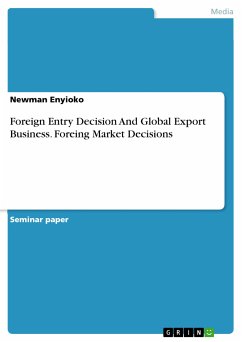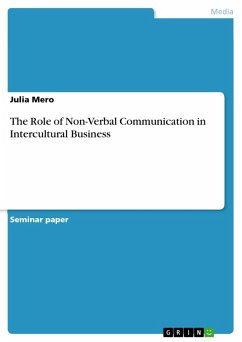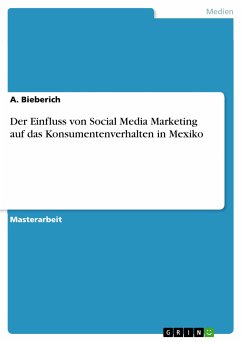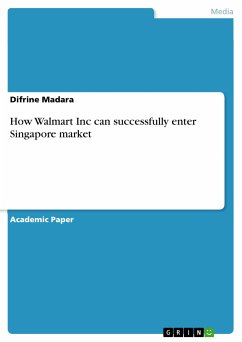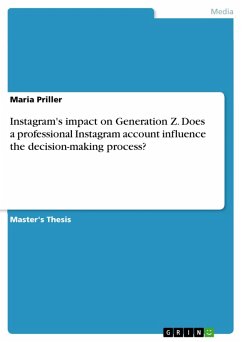Seminar paper from the year 2020 in the subject Communications - Public Relations, Advertising, Marketing, Social Media, grade: 4.5, , course: Management Sciences // Marketing, language: English, abstract: This paper examined issues surrounding foreign entry decisions. Essentially, the paper determined why and how a company makes a decision to enter a foreign market. The study was descriptive and data were sourced from various books, trade journals, publications and internet sites etc. The study revealed that foreign market entry strategy is an important strategic decision for international business units. The choice of foreign market entry strategy is to be made very cautiously as it has long-term implications, and it cannot be easily reversed. The study found that the future growth of international business unit depends upon the right mode of entry into foreign market. As revealed in the study there are three main modes of entry into foreign market namely: Trade mode, investment mode and contractual entry mode. In trade route, the entry in foreign market is made through exports. In investment mode, the subsidiary units are set up in the foreign market. This mode is also called foreign direct investment mode. In contractual entry mode, technological collaboration agreements are made with the business units of host nation. In this mode, technical skills/managerial skills are provided by business unit in parent country to business units in host country. Besides these three main strategies for entry into foreign markets. The choice of the appropriate strategy depends upon various factors like availability of resources, level of risk, tariff and non-tariff barriers imposed by other nations, transportation cost, infrastructure facilities, vision of management, restrictions on inflow/outflow of foreign investment. A key conclusion in the study is that there are different motives for an entry on a foreign market. The different motives that are stated in the study have common denominator which is that they can all lead to increased profit in the long run. The study suggests that in order to make an effective foreign market entry decision, firms and international business practitioners should apply the foreign-market-entry-model. They should also highlight those factors that have been found to be of most importance while entering a foreign market.
Dieser Download kann aus rechtlichen Gründen nur mit Rechnungsadresse in A, B, BG, CY, CZ, D, DK, EW, E, FIN, F, GR, HR, H, IRL, I, LT, L, LR, M, NL, PL, P, R, S, SLO, SK ausgeliefert werden.

